Experts Matter. Find Yours.
Connect for media, speaking, professional opportunities & more.

#Expert Opinion: 'Gun laws need an overhaul'
In the aftermath of last week's school shooting in Georgia, Jennifer Necci Dineen and Kerri M. Raissian from UConn’s ARMS Center contributed this compelling piece to The Atlanta Journal-Constitution. The entirety of the article is available here: On Sept. 4, the United States experienced its 45th school shooting of 2024, this time at Apalachee High School in Winder, Georgia. Barrow County Sheriff Jud Smith called the shooting “pure evil” and reported the suspected shooter would be tried as an adult. Since then, the shooter’s father has also been charged. A criminal justice response is vital, but it cannot be our only response. Gun laws need an overhaul. The failure to do so means that we will continue charging shooters and their families and attending the funerals of those senselessly killed. Laws are the role of government. Should elected officials fail to act (again), we think it is also fair to hold them responsible for the firearm violence killing our nation’s children. Georgia lawmakers have passed legislation to protect children in other ways. Georgia requires that children be at least 16 years old and to have held a learner’s permit for a year before they can drive: minors under 16 cannot be employed in dangerous or harmful jobs; and those under 17 cannot marry. These restrictions recognize that children’s prefrontal cortex, the part of their brain responsible for reasoning, impulse control and decision-making, is not yet fully formed. Yet, despite firearms being the leading cause of death for children in the United States, Georgia has minimal regulations governing children’s firearm access. There is no minimum age for purchasing or possessing rifles or shotguns, no permit required for carrying firearms in public (whether open or concealed) and no mandate for secure firearm storage (such as unloading, locking and storing ammunition separately). Details of the shooting in Winder continue to emerge, but let’s start with what we know. Reports indicate that the shooter and his father were questioned by the Jackson County Sheriff’s Office in May 2023 following multiple anonymous tips about online threats, including images of guns. The suspect’s father claimed that his child did not have unfettered access to the guns. The authorities did not have probable cause for an arrest, and so they left and the guns stayed. And, in fact, the father bought his son a new gun — an AR-15 — as a Christmas present. Perhaps more disturbing is that this kind of negligence and indifference is not an anomaly. A similar set of facts surround the Nashville Waffle House shooter and the Michigan Oxford High School Shooter. In both cases, parents ignored warning signs and helped their sons keep or procure firearms that were used in mass shootings. Moreover, almost three-quarters of guns used in gun-related incidents at schools come from the home or someone the shooter knows. It’s fair to ask: Where are the parents? However, we also want to know where are the elected officials charged with keeping us and our children safe when they are at school, the movies, a parade or otherwise living their lives? Laws mandating secure firearm storage, permitting, minimum age requirements and background checks have been proven to lower firearm homicide rates. Emergency risk protection orders, or red-flag laws, which temporarily prevent individuals deemed a danger to themselves or others from possessing or purchasing firearms, have also been effective in reducing firearm homicides. Georgia’s failure to implement such regulations, allowing a child with underdeveloped decision-making skills to access a gun, means the state shares the blame for the gun-related injuries and deaths at Apalachee High School. Georgia Gov. Brian Kemp is right. It’s not the time to “talk about safety and policy.” The time was years ago, but it’s never too late to do the right thing. Kerri Raissian is an associate professor in the School of Public Policy at the University of Connecticut; director of the University of Connecticut's UConn’s Center for Advancing Research, Methods, and Scholarship (ARMS) in Gun Violence Prevention; and co-director of the Institute for Collaboration on Health, Intervention, and Policy (InCHIP) Gun Violence Prevention Research Interest Group. Her research focuses on child and family policy, with an emphasis on understanding how policies affect fertility, family formation, and family violence. She is available to speak to media about this important topic - simply click on her icon now to arrange an interview today.
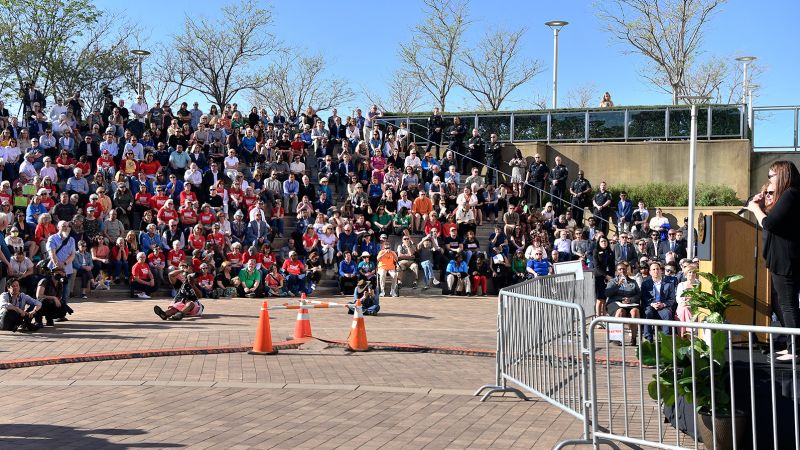
Is there a link between CTE and mass shootings? Let our expert explain
This spring news of mass shootings has dominated the headlines almost weekly with stories of tragedy in Michigan, Tennessee, Kentucky and Alabama. To date, there have been an estimated 160 mass-shootings in America this year. In the wake of each tragedy, Americans are left asking 'How this could happen?' and 'Why did this happen?' In the case of the April 10 shooting in Louisville, the parents of the gunman are also seeking answers as they claim prior trauma and CTE may have played some part in the shooter's actions and motivation. It's a theory that's getting a lot of attention from doctors and journalists. The family of Connor Sturgeon – who was killed after he fatally shot five people Monday morning at the Old National Bank in Louisville, Kentucky – plans to have his brain tested for chronic traumatic encephalopathy, commonly known as CTE, his father and a spokesperson for the family told CNN on Thursday. “Yes, Connor is being tested for CTE. Probably will take a while to get results,” Todd Sturgeon, Connor Sturgeon’s father, texted to CNN. Pete Palmer, a family friend who is speaking for the Sturgeons, said the family and the state medical examiner are looking to have Connor Sturgeon’s brain tested. April 14 - CNN There's a lot to know when reporting on CTE, especially when it involves the potential links to tragedy and a mass shooting. And that's where clinical experts can help and make sure reporters have the details, terminology and facts correct when covering such important topics. With over 40 years of clinical practice, Wayne Hulon is an American Board Certified Psychotherapist, and is also recognized by the State of Georgia as a Licensed Professional Counselor. In addition to his private practice, Wayne serves as a member of the American College of Psychotherapy and is currently serving as its Executive Director. Wayne is available to speak with media regarding this subject - simply click on his icon now to arrange an interview today.
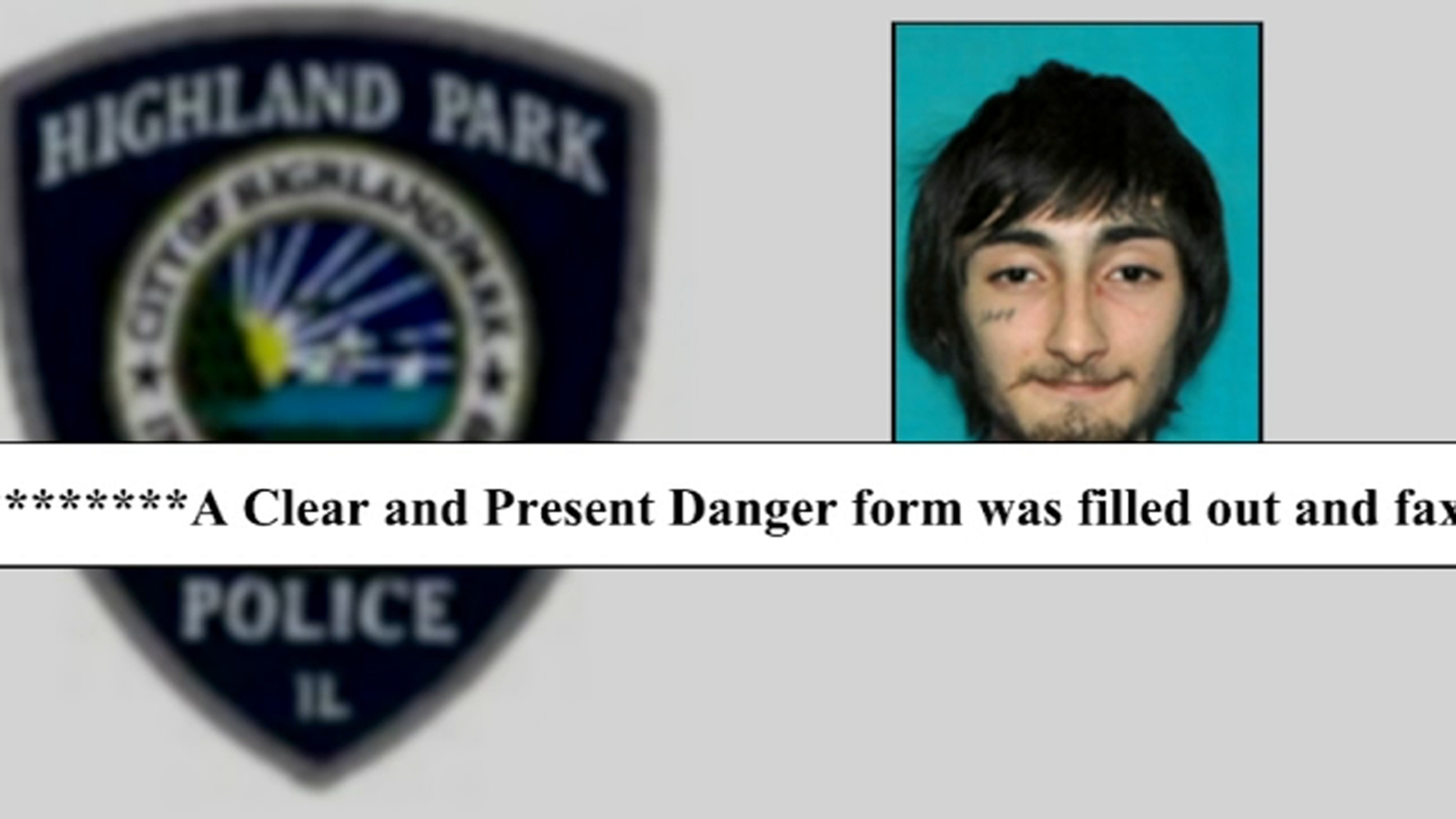
On July 4, 2022 when people across America were expecting to enjoy a day off and celebrating the country's 245th birthday - another mass shooting occurred. This time it was in Highland Park, Illinois and so far this year, a week has not passed in America without a mass shooting. In the aftermath of the July 4th tragedy - media were clamoring to cover and looking for answers, motives and reasons. UMW's Laura Wilson, a go-to expert on the topic was contacted immediately by media. Even with Crimo's history, it's not as if Absler or anyone else could have predicted that one day he'd be accused of mass murder, experts say. "We don't really know much about how to predict mass shootings, and we don't really have a profile of a shooter, what the characteristics are. They are shared by millions of people," says Laura Wilson, an associate professor of psychology at the University of Mary Washington in Virginia. "There aren't any clear-cut characteristics that we can definitively say, this is the mold." July 11 - ABC News Dr. Laura Wilson is a clinical psychologist whose expertise focuses on post-trauma functioning, particularly in survivors of sexual violence or mass trauma (e.g., terrorism, mass shootings, combat). Her research interests extend to predictors of violence and aggression, including psychophysiological and personality factors, as well as indicators of PTSD following mass trauma, long-term functioning among first responders, outcomes among survivors of sexual violence and the influence of media on mental illness stigma. Dr. Wilson is available to speak with media, simply click on her icon to arrange an interview today.
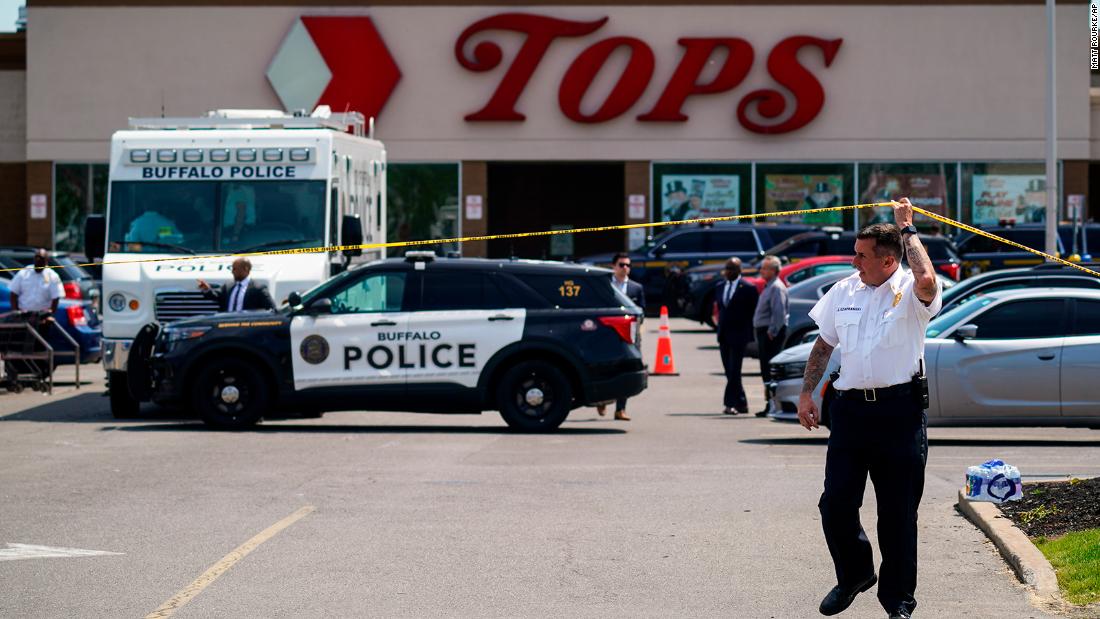
UMW Psychological Trauma Expert Laura Wilson can help with your coverage
It was a typical spring weekend in Buffalo that was shattered by another mass-shooting. The incident was the 198th to be classified a 'mass shooting' in America so far this year. The 18-year-old man who allegedly shot and killed 10 people at a Buffalo supermarket Saturday afternoon was motivated by hate, authorities said. The Tops Friendly Market where the shooting took place is located in the heart of Buffalo’s Black community and 11 of the 13 people shot by the White suspect were Black, officials said. “This was pure evil,” Erie County Sheriff John C. Garcia said at a Saturday news conference, calling the shooting a “straight up racially motivated hate crime from somebody outside of our community.” The US Department of Justice is investigating the shooting “as a hate crime and an act of racially-motivated violent extremism,” according to a statement from US Attorney General Merrick Garland. May 16 - CNN Once the news coverage fades, there will still be so many co-workers, first responders and families left to grapple with incidents with this level of trauma and horror. If you are a reporter looking to cover the issues survivors of mass-shooting events might face, then let us help. Dr. Laura Wilson is a clinical psychologist whose expertise focuses on post-trauma functioning, particularly in survivors of sexual violence or mass trauma (e.g., terrorism, mass shootings, combat). Her research interests extend to predictors of violence and aggression, including psychophysiological and personality factors, as well as indicators of PTSD following mass trauma, long-term functioning among first responders, outcomes among survivors of sexual violence and the influence of media on mental illness stigma. Dr. Wilson is available to speak with media, simply click on her icon to arrange an interview today.

Expert opinion: Why aren't mass shootings considered acts of terrorism?
With tragic news of a mass shooting in Buffalo this past weekend, and along with it evidence that the massacre was racially motivated, some leaders and citizens alike are calling to have this crime considered an act of terrorism. Though that may be the immediate reaction of some, Augusta University's Dr. Lance Hunter, associate professor of political science in the Katherine Reese Pamplin College of Arts, Humanities, and Social Sciences, explains why there's a lot to consider before rushing to brand an action as terrorism. “We argue that it’s very important to consider these acts of domestic terrorism if they fit the definition, because it’s easier for governments to monitor individuals that may possibly carry out these attacks,” said Hunter. “Looking at the incident in Buffalo, in my estimation and based on the evidence that I’ve seen, it fits all the criteria to be considered a form of domestic terrorism.” If that's the case, then why are people reluctant to consider mass shootings an act of terrorism? “I think individuals at times tend to have a preconception that terrorism tends to be something that’s carried out by ISIS or Al Qaeda, or a group of organizations such as that, and if it’s an individual outside of those organizations, it may not be considered terrorism. But when you look at the actions, they clearly fit the criteria for terrorism. Secondly, I think it’s the form of the attack type that does matter a lot, regarding people’s perceptions.” When it comes to domestic terrorism, what about privacy rights? What about an invasion of privacy? "We’re not arguing to create a policy saying we are constantly monitoring people for no reason at all," said Hunter. "What we’re arguing is someone who’s showing extremist tendencies and then also a tendency to possibly violently harm people, are there warning signs? In a lot of cases of mass murders, there are warning signs. If these individuals are monitored more closely, it’s not 100% guarantee these attacks will be prevented, but the likelihood will be much greater it could have possibly been prevented and we’ve seen this throughout a lot of cases and our research.” Dr. Lance Hunter is an assistant professor of political science with a background in international relations. His research focuses on how terrorist attacks influence politics in democratic countries and how political decisions within countries affect conflicts worldwide. Hunter is available to speak with media about this important topic - simply click on his icon to arrange an interview today.

UConn Expert Weighs In On 'What Drives a Black Mass Shooter?'
“We would be missing a critical moment," says Dr. Wizdom Powell, "for us to look at the systems that we have set up and ask ourselves, are we serving every person who has a mental health need well, and if we’re not, what are we going to do about it?” Director of the Health Disparities Institute and associate professor of psychiatry at UConn Health, Dr. Powell studies the impact of modern racism and gender norms on African American male health outcomes and healthcare inequities. In a recent interview with the Amsterdam News following a mass shooting incident involving an alleged Black suspect, Dr. Powell weighed in the ways in which implicit racism can frame how law enforcement classifies shootings, the importance of deconstructing harmful racial and gender stereotypes, and the delivery of mental health services to communities and individuals in need: “When you call something gang violence, I think people’s empathy goes down to zero because they think those people are killing themselves,” said Powell. “You know, it’s their problem. Nevermind the victims.” Powell said that in the event of a mass shooting incident there is usually a “sympathy” conveyed for a person as a “complicated human” as opposed to a person of color who was involved in a gang shooting. “When do you get a full picture of that person? Who they were as a child, all of the traumas they experienced, their lack of resources,” said Powell. Powell thinks there’s a conflation in general between individuals who are mentally ill and those who commit mass shootings. She said mass shootings are a massive public health crisis with many factors contributing, with mental illness being one of many. ********** Powell said that the emotionality or interior lives of Black men are always spoken about with an undue amount of concentrated attention on their anger. She strives to deconstruct the stereotype of the ‘angry Black male.’ She said that there is a prevailing presumption that anger is somehow bad or pathological when it’s actually a legitimate response to emotional suffering and injustice. So when an incident that fits the stereotype of the ‘angry Black male’ occurs, people hyper focus on it because it confirms their bias. “I think there is a disproportionality in our reporting about these incidents by race,” said Powell, “we also tend to paint the picture of these shooters more sympathetically, when the shooters are non-Hispanic white males as opposed to males from other socially marginalized groups.” In the 1960s, said Powell, there was a shift in the way that the field of psychology and psychiatry viewed Black men and their symptomatology while civil rights protests were erupting around the country. Prior to the ’60s “middle class, white housewives” were diagnosed with schizophrenia more often, but there was a sharp uptick among Black males afterwards. “Again, reminiscent of an earlier time where Black people’s quest for liberation was pathologized,” said Powell. Powell said that health and science is still at the “tip of the iceberg” in identifying symptoms of depression in Black men. She said her studies have found that societal racism or experiencing racism or secondary traumas of racial reckoning is definitively at the root of Black and Brown male depression. Dr. Powell is available to speak with media – simply click on her icon now to arrange an interview today.
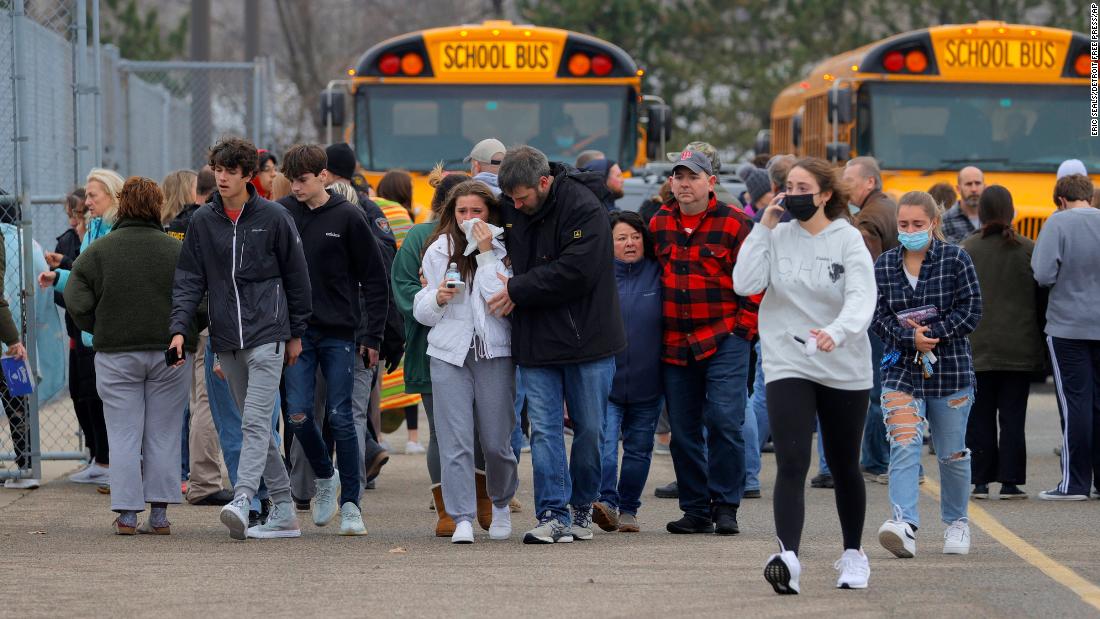
It was a tragic day in America this week as a 15-year-old is in custody after allegedly opening fire on a school in Oxford, Michigan, which left three teenagers dead and at least eight more wounded by the gunfire. Three students were killed in the attack at the school some 40 miles north of downtown Detroit -- Madisyn Baldwin, 17; Tate Myre, 16; and Hana St. Juliana, 14, authorities said. Myre died in a patrol car while a deputy was taking him to a hospital, Bouchard said. Eight others -- seven students and a teacher -- were shot, Bouchard said. Two were in critical condition Wednesday morning, he said. Among the wounded were a 14-year-old girl who was on a ventilator following surgery, Bouchard said Tuesday night. A 14-year-old boy also had a gunshot wound to the jaw and head, while the teacher who was shot had been discharged. The attack was the deadliest US school shooting since eight students and two teachers were slain in May 2018 at Texas' Santa Fe High School, according to Education Week. There have been 28 school shootings this year -- 20 since August 1 -- by its tally. December 01 - CNN Many are wondering how students, teachers, first responders and families grapple with incidents with this level of trauma and horror. If you are a reporter looking to cover the issues survivors of mass-shooting events might face, then let us help. Dr. Laura Wilson is a clinical psychologist whose expertise focuses on post-trauma functioning, particularly in survivors of sexual violence or mass trauma (e.g., terrorism, mass shootings, combat). Her research interests extend to predictors of violence and aggression, including psychophysiological and personality factors, as well as indicators of PTSD following mass trauma, long-term functioning among first responders, outcomes among survivors of sexual violence and the influence of media on mental illness stigma. Dr. Wilson is available to speak with media, simply click on her icon to arrange an interview today.
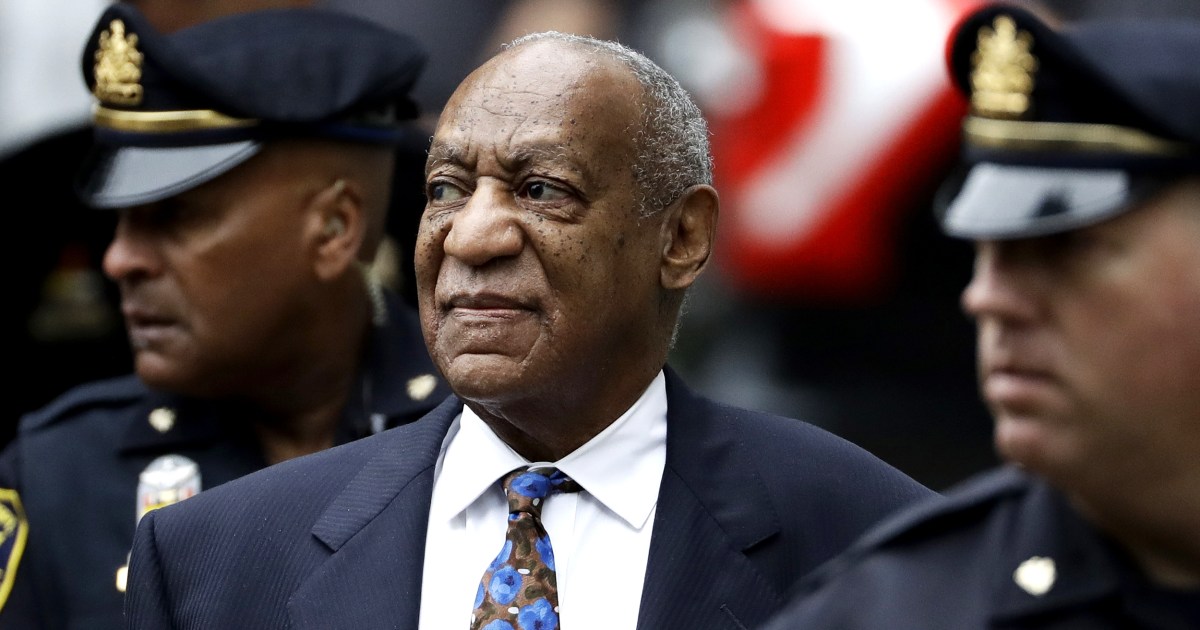
Covering Cosby? Connect with UMW psychological trauma expert Laura Wilson
It’s news that has everyone shocked. Bill Cosby is getting out of jail and will be a free man. Pennsylvania's Supreme Court vacated the sexual assault conviction of Bill Cosby on Wednesday and ordered his release from prison after finding that he was denied protection against self-incrimination. The court said that a prosecutor's decision not to charge Cosby, 83, opened the door for him to speak freely in a lawsuit against him — and that testimony was key in his conviction years later by another prosecutor. Cosby was convicted in 2018 of drugging and sexually assaulting a woman in 2004, and was serving a three- to 10-year sentence. He has served two years of the sentence. The state Supreme Court said Cosby cannot be retried on the same charges. June 30 – NBC News This is a story that will be dominating the news cycle for some time – and if you are a reporter covering this story, then let our expert help. University of Mary Washington Associate Professor of Psychological Science Laura C. Wilson has provided sought-after commentary to The Washington Post, NPR, Reuters, Huffington Post, NBC, The Atlantic and more on the psychological trauma experienced by survivors of rape and sexual assault, as well as mass shootings. Dr. Wilson is available to speak with media, simply click on her icon to arrange an interview today.

A veteran police officer and a bystander were gunned down in a Denver suburb earlier this week in what authorities are saying was a targeted attack by someone who “expressed hatred” for police. A 19-year veteran of the force, Gordon Beesly was allegedly killed because he was simply wearing a uniform and a badge. The tragic fatality is getting massive coverage and UMW’s Laura C. Wilson was interviewed by The Washington Post to provide her expert perspective on the impact this incident will have on survivors. Laura C. Wilson, an associate professor of psychology at the University of Mary Washington in Virginia, said that years ago she might have thought about each mass shooting or shooting in a public place as having unique characteristics that affect survivors. But she now considers the trauma of multiple events. “When we start to see a lot of these events happening in a small community or within the country, we start to have these compounding impacts,” she said. “People now have more evidence that the world is unpredictable, more evidence that regardless of what I do I can’t keep myself safe.” But Wilson stressed that the effects of trauma are unique to every individual, every survivor. There will be extensive coverage of this killing and if you are a reporter looking to cover the issues survivors of mass shooting events will experience, then let us help. Dr. Laura C. Wilson is a clinical psychologist whose expertise focuses on post-trauma functioning, particularly in survivors of sexual violence or mass trauma (e.g., terrorism, mass shootings, combat). Her research interests extend to predictors of violence and aggression, including psychophysiological and personality factors, as well as indicators of PTSD following mass trauma, long-term functioning among first responders, outcomes among survivors of sexual violence and the influence of media on mental illness stigma. Dr. Wilson is available to speak with media, simply click on her icon to arrange an interview today.

Gun violence expert on Biden gun violence plan
Jonathan Metzl, Frederick B. Rentschler II Professor of Sociology and Medicine, Health, and Society, is available for analysis on President Biden's gun violence plan. A recognized author and expert source in the wake of gun incidents and mass shootings, Metzl can speak from a balanced perspective on the legacy of mass shootings, gun violence, gun legislation and reform and narratives around mental health. Dr. Metzl is the author of the book, Dying of Whiteness, which examines the stereotypes of race and mental illness surrounding gun violence, and recent research, which lays out a five-part agenda for future research into mass shootings and multiple-victim homicides.





